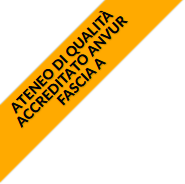![[cml_media_alt id="716"]immagine_SPH_01[/cml_media_alt]](https://i0.wp.com/hylabnew.unipr.it/wp-content/uploads/2018/12/immagine_SPH_01.png?w=1200)
![[cml_media_alt id="717"]immagine_SPH_02[/cml_media_alt]](https://i0.wp.com/hylabnew.unipr.it/wp-content/uploads/2018/12/immagine_SPH_02.png?w=1200)
This is a short course on Smoothed Particle Hydrodynamics (SPH) numerical schemes that will cover basic and theoretical concepts, as well as latest innovations. This course is primarily aimed at the beginners with a Master and/or a PhD degree in mathematics, engineering, computer science, physics, environmental disciplines, astrophysics and biomedicine, amongst others. The contents will also be of interest to post-doctoral fellows in academia and industry, as well as to academics and SPH practitioners.
The course will combine lectures on the basic theory and numerical methods.
It will also include a final tutorial using the open source code DualSPHysics, an international collaboration between five institutions: The University of Manchester (UK), The University of Vigo (Spain), Universitat Politècnica de Catalunya (Spain), University of Lisbon (Portugal), the University of Parma (Italy), and New Jersey Institute of Technology (United States): http://www.dual.sphysics.org
The SPH method
Developed originally for astrophysics, Smoothed Particle Hydrodynamics (SPH) has seen a rapid development in the last decade due to its application to engineering problems for both fluids and solids. The meshless and Lagrangian nature of SPH makes it perfect for applications where there are very large deformations with arbitrarily complex moving boundaries. The method is now attracting considerable interest from the industry for solving a range of complex problems where conventional Computational Fluid Dynamics (CFD) methods and Computational Mechanics have great difficulties.
Venue
The course will be virtual, a link will be provided to people registered to attend the online classes.
Contact person
Dates
5 -15 October 2021, the course will be fully online. The detailed programme of the course will be published in early September.
You can register here: https://forms.gle/9JDADddT4WKhptAs5
The Registration is free of charge.
Course Lecturers
Prof. Benedict Rogers
Professor Benedict Rogers is the Chair of Computational Hydrodynamics at the School of Mechanical, Aerospace and Civil Engineering (MACE) in the University of Manchester. With his doctoral studies in numerical simulation of free-surface flow for shallow water, he has more than 15 years of experience of SPH research having published over 55 journal papers on SPH investigating fundamental formulations, hardware acceleration and engineering applications such as wave breaking, wave impact and multi-phase flows. He was Chair (2015-2021) of the Smoothed Particle Hydrodynamics rEsearch and engineeRing International Community (SPHERIC), the international organization representing developers, users and researchers of SPH.
Dr. Renato Vacondio
Dr. Renato Vacondio is a Research Fellow at the University of Parma. He obtained his PhD from the University of Parma in Italy on SPH developing a new methodology for solving shallow water flows. He published 18 papers on SPH mainly focused on fundamentals of SPH schemes with special focus on variable resolutions, boundaries, and stability of the numerical method. He is one of the main developers of the DualSPHysics opensource code as well as Chair (2021-2026) of the Smoothed Particle Hydrodynamics rEsearch and engineeRing International Community (SPHERIC), the international organization representing developers, users and researchers of SPH.





